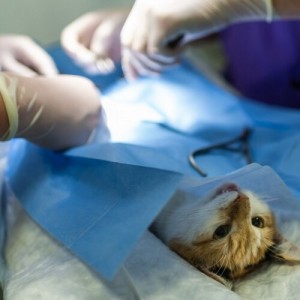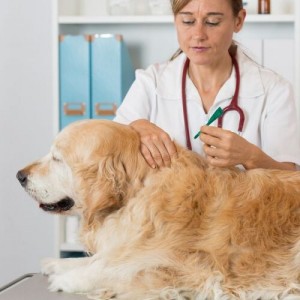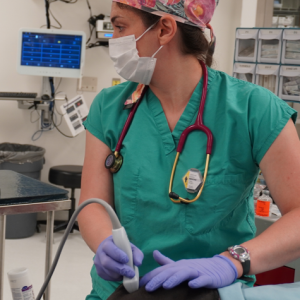AVMA News: USDA starts highly pathogenic avian influenza vaccine trials
By R. Scott Nolen
On May 1, AVMA News reported that the U.S. Department of Agriculture (USDA) is testing the efficacy of a handful of vaccines against the current strain of highly pathogenic avian influenza (HPAI) hoping to stem the spread of the largest outbreak of bird flu in the nation’s history. The virus has so far been reported in all but one state, Hawaii, and has resulted in the deaths of nearly 60 million poultry.
While four vaccines are licensed for avian influenza — HA subtype, H5N1, H5N3, and H5N9 — none are approved for the more virulent strain, H5N1 clade 2.3.4.4b, found in the current outbreak. This strain likely originated in wild birds, subsequently reached commercial poultry operations, then spilled over into nonhuman mammals, including mountain lions, coyotes, and bottlenose dolphins, which many have ingested infected birds.
Researchers with the USDA’s Agricultural Research Service (ARS) started testing four vaccine candidates this April, beginning with single-dose trials, according to a USDA spokesperson. Initial data from the trials are expected to be available this May. Researchers expect to have two-dose vaccine challenge studies with results in June.
Should these trials be successful—and should the USDA continue development—the next step is identifying manufacturers interested in vaccine production, the spokesperson continued. Once one or more manufacturers are identified, more than a dozen stages must be completed before vaccine delivery, starting with feasibility work by the manufacturer and culminating with product label submission and review.
Among those manufacturers is Zoetis, which announced on April 5 its development of an avian influenza vaccine geared toward currently circulating strains. According to the company, distribution of a vaccine effective against the current HPAI strain would take roughly a year.
USDA’s Animal and Plant Health Inspection Service (APHIS) Center for Veterinary Biologics (CVB) is responsible for regulating animal biologics, including vaccines. Vaccine candidates are reviewed and approved by CVB to ensure they are safe, potent, pure, and effective, i.e., well-matched against the genetics of the current virus strain.
While typical timeframes for development and approval of animal vaccines are two and a half to three years, the USDA spokesperson noted that manufacturers may expedite development in emergency situations, resulting in a shortened licensure timeframe.
While vaccination can substantively reduce mortality and has the support of some sectors of the poultry industry, others worry that vaccinated birds could still contract the disease and transmit it, effectively masking the spread of the virus and hindering surveillance efforts. There is also concern about the rapidity with which HPAI can mutate, which could reduce the efficacy of a vaccine.
Given the many challenges of vaccine development and approval, the USDA spokesperson said it is critical that bird owners look at what they can do immediately to protect their flocks now.
“Biosecurity is the best defense against HPAI,” the USDA spokesperson said, “and USDA strongly encourages all bird owners to review our resources, such as our factsheet on managing wildlife to prevent the introduction of avian influenza, evaluate their biosecurity plans, and develop a strategy to prevent any exposure to wild birds or their droppings.”
Another major issue with vaccinating for HPAI is the potential loss of export markets, said Dr. Karen Grogan, clinical associate professor of avian medicine at the University of Georgia College of Veterinary Medicine. Historically, naturally infected birds cannot be differentiated from vaccinated birds, so countries impose trade restrictions rather than risk domestic poultry flocks, Grogan explained.
“The way that you preserve trade is you have a vaccine that allows you to do what’s called the DIVA strategy, that is, differentiate infected from vaccinated animals,” she said. “One approach is creating a vaccine using a neuraminidase type that’s different from the circulating virus that you could test for serologically.”
Viral neuraminidase is a type of neuraminidase found on the surface of influenza viruses that enables the virus to be released from the host cell.
An HPAI vaccine might also be approved for special bird collections, such as those exhibited at zoos, Grogan added.
“A lot of these decisions would have to be made within USDA with input from industry and stakeholders, she said. “You would also see a lot of input from the researchers at ARS given their research about a vaccine’s efficacy in a number of potential settings.”
Read the original story on the AVMA News site.













List
Add
Please enter a comment